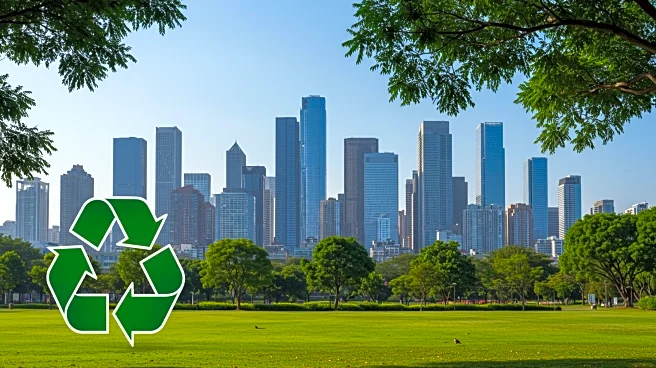What is the story about?
What's Happening?
Lagos, Nigeria, has imposed a ban on single-use plastics, including cutlery, plates, and straws, effective from July 1. The city, home to over 20 million people, contributes significantly to global plastic waste, generating 870,000 tons annually. Despite the ban, enforcement remains weak, and alternatives are scarce, leading to continued use of banned items. The absence of a robust waste management system results in plastic waste clogging waterways and contributing to floods. Private waste managers and sustainability groups are emerging to address the crisis, but the effectiveness of the ban is questioned due to limited enforcement and lack of affordable alternatives.
Why It's Important?
The ban on single-use plastics in Lagos is a critical step towards addressing the city's severe pollution problem. With plastic waste contributing to environmental degradation and flooding, effective waste management is essential. The initiative highlights the need for stronger enforcement and viable alternatives to ensure compliance. The situation in Lagos reflects broader global challenges in managing plastic waste, emphasizing the importance of international cooperation and local action. The success of the ban could serve as a model for other cities facing similar issues, but its current limitations underscore the complexity of implementing environmental policies.
What's Next?
The Lagos state government faces pressure to enhance enforcement of the plastic ban and provide affordable alternatives to residents. Environmental activists call for behavioral changes among citizens and greater involvement from manufacturers in recycling efforts. The ongoing negotiations in Geneva for a global treaty on plastic pollution could influence local policies and provide support for Lagos's initiatives. As private waste management companies and sustainability groups continue to grow, their role in tackling the city's waste crisis may expand, potentially leading to improved waste management systems and reduced pollution.
















